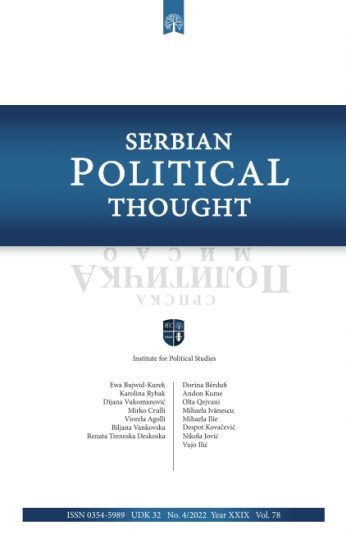Main topic
spt2/2014
The Concept of ‘Commercial Anarchy’ in Fichte’s The Closed Commercial State
Abstract
Fiche’s Der geschlossene Handelstaat presents a concept that, on the one hand, plays a role of primary importance for a critique of the ‘liberal liberty’ and, on the other hand, allows for a critical understanding of the aporias of today’s ‘neoliberal condition’. This concept is Handelsanarchie, the ‘commercial anarchy’ of a historical world that aspires to remove every political constraint in order to let the depoliticized economic become the undisputed master. In the following pages, we will conduct an examination of the Fichtean concept of Handelsanarchie in Der geschlossene Handelstaat, then we will outline some considerations (albeit impressionistic) about its critical scope in the current economic convergence of laissez-faire and neoliberal deregulation.
References
- Betteridge, H.T. (1988) “How to make an Idealist: Fichte’s Refutation of Dogmatism”, in The Philosophical Forum, XIX (1987-1988).
- Crone, K. (2005) Fichtes Theorie konkreter Subjektivität. Untersuchungen zur ‘Wissenschaftslehre nova methodo’. Göttingen: Vandenhoeck&Ruprecht.
- Furlani, S. (2005) Libertà economica e controllo politico. Lo «Stato commerciale chiuso» di Fichte. Milano : Franco Angeli.
- Gurwitsch, G. (1924) Fichtes System der konkreten Ethik. Tübingen.
- Harada, T. (1989) Politische Ökonomie des Idealismus und der Romantik: Korporatismus von Fichte, Müller und Hegel. Berlin: Duncker und Humblot.
- Hickey, L.P. (2004) “Fichte’s Critique of Dogmatism. The Modern Parallel”, The Philosophical Forum, 35(2004): 65-81.
- James, D. (2011) Fichte’s Social and Political Philosophy: Property and Virtue. Cambridge: Cambridge University Press.
- Lauth R. (2004) Con Fichte, oltre Fichte. Torino: Trauben.
- López-Domínguez, V.E. (1994) “Individuo y Comunidad: reflexiones sobre el eterno círculo fichteano”, Revista de Filosofia, 11(1994): 139-154.
- Maesschalck, M. (1996) Droit et création sociale chez Fichte. Une philosophie moderne de l’action politique. Louvain: Peeters.
- Mittmann, J.-P. (1993) “Tathandlung und absolutes Subjekt”, Philosophisches Rundschau, 40(1993): 274-290.
- Oesterreich, P.L. (1999) “Die Einheit der Lehre ist der Gelehrte selbst. Zur personalen Idee der Philosophie bei Johann Gottlieb Fichte”, Fichte-Studien, 16(1999): 1-18.
- Pareyson, L. (1950) Fichte. Torino: Edizioni di Filosofia, 1950 [second edition with the title Il sistema della libertà, Milano, Mursia, 1976].
- Picardi, R. (2009) Il concetto e la storia: la filosofia della storia di Fichte. Bologna: Il Mulino.
- Picardi, R. (2012) “Geschichte und europäische Identität bei Fichte”. In: C. Binkelmann (ed.) Nation – Gesellschaft – Individuum. Fichtes politische Theorie der Identität. Amsterdam/New York, NY: Rodopi. 123-147.
- Schenkel, F. (1987) Individualität und Gemeinschaft: der demokratische Gedanke bei J.G. Fichte. Dornach: Spicker.
- Siep, L. (1992) “Naturrecht und Wissenschaftslehre”. In: M. Kahlo et al. (eds.) Fichtes Lehre vom Rechtverhältniss. Frankfurt a. M.: Klostermann. pp. 71-91.
- Thomas-Fogiel, I. (2004) Réflexion et argumentation. Paris: Vrin.
- Wallwitz, G. (1999) Fichte und das Problem des intelligiblen Fatalismus, in: Fichte-Studien, 15 (1999): 121-145.
- Wood, A.W. (2004) “Kant and Fichte on Right, Welfare and Economic Redistribution”, in: International Yearbook of German Idealism, 2(2004): 79-85.
- Zöller, G. (2012) “‘Nation commune’. L’idée fichtéenne d’une histoire universelle de l’Europe au point de vue cosmopolitique”. In: J.-C. Goddard and J. Rivera de Rosales (eds.) Fichte et la politique. Monza: Polymetrica.

